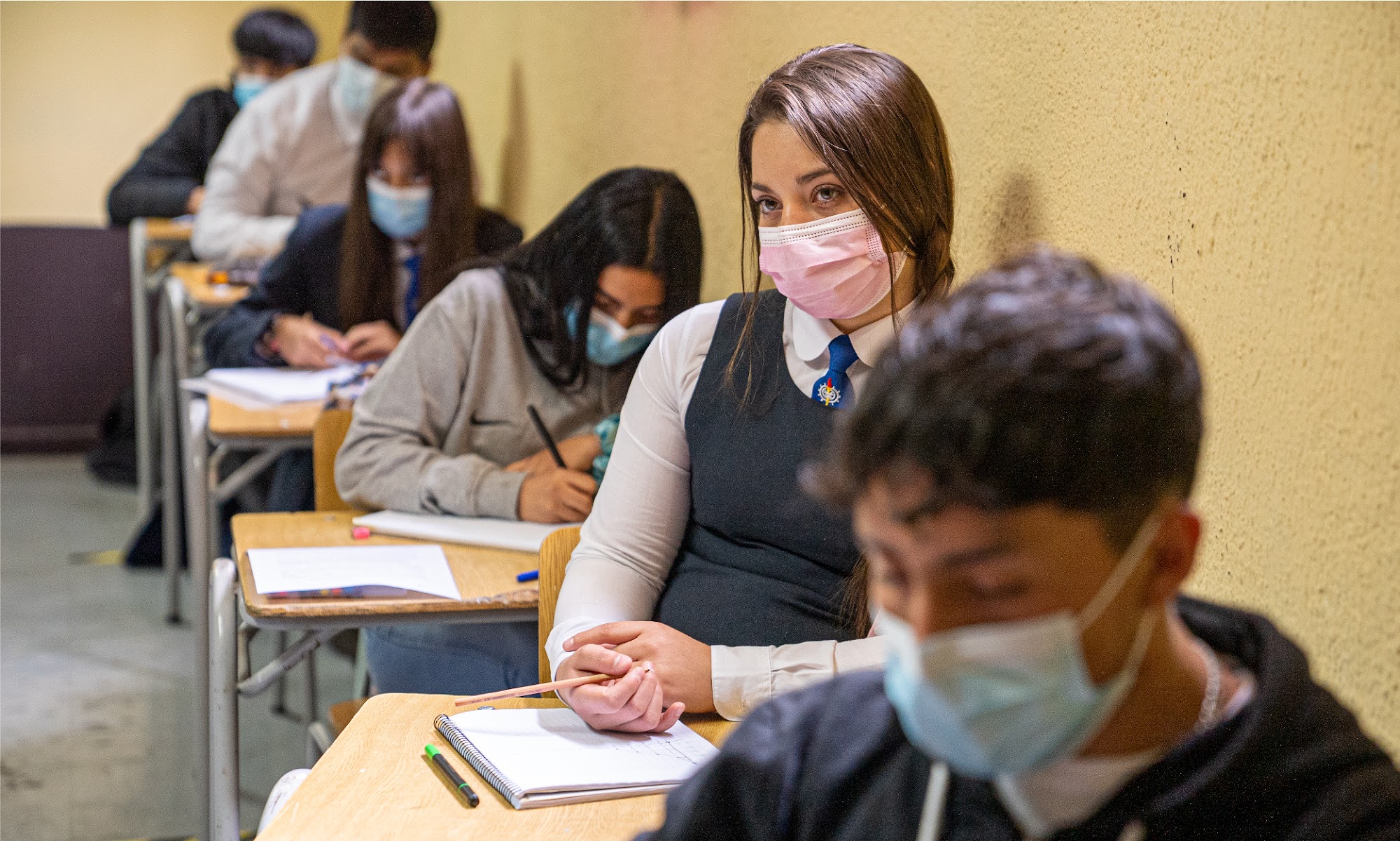It is estimated that every year more than 70 thousand students graduate from technical and vocational secondary education in Chile. However, according to a study conducted in 2020 by the Ministry of Education on the subject, only about 60% of the total enters higher education within two years of graduation. In order to increase this percentage and to improve the quality of life of these students and their families, MueveTP – an initiative promoted by the Luksic Foundation – seeks to bring together the educational communities of Chile’s vocational technical high schools and various actors and institutions to work together for the continuity of studies of these young people, promoting the development of their skills, talents and life projects.
During 2021, MueveTP will reach more than two thirds (576) of the country’s professional technical schools with different actions. One of the pillars of this initiative is the Strengthening of Educational Initiatives (FIE), which in its first version benefited 48 TP high schools in Chile with maximum amounts of $25 million, to promote projects that arise from the school communities themselves and that aim to strengthen the access of young people to higher education.
On the other hand, more than 100 teachers, directors and education assistants were part of the Continuous Improvement Collaborative Networks, which allowed them to acquire specific tools in mathematics, language and social-emotional skills, essential to strengthen the learning of young people during secondary education.
As for the Future Aspirations program, close to 150 schools and more than 13,000 students were contacted to receive personalized, useful and practical information that would enable young people to make good decisions about access to higher education.
The executive director of MueveTP, María Fernanda Orellana, explained that “one of the challenges is to expand our outreach to young people, listen to them and understand their motivations even more, so that each of our programs allows them to make good decisions about continuing their studies in higher education. For this, it is also key to highlight and strengthen the role of educational institutions, the labor market and society as a whole to push them along this path”.
Meanwhile, the general manager of Fundación Luksic, Álvaro Ipinza, said that “we aspire to leave installed capacities in the communities and to be recognized for the positive impact we generate in them. We are convinced that the continuity of studies of those who graduate from the professional technical school system is fundamental to reduce socioeconomic gaps, and to advance in this line it is essential to strengthen the collaborative work between public and private entities to improve the expectations of students and their families”.
2022 Challenges
MueveTP’s objective for the year 2022 is to consolidate its program offerings, strengthen and generate new alliances with organizations that share the purpose of continuing studies. In addition, it seeks to amplify communication with young people and educational communities, providing quality information for the construction of their professional future and life projects.
Regarding the Collaborative Networks for Continuous Improvement, 20 new TP schools will be integrated in the regions of Coquimbo, Valparaíso, Metropolitan, O’Higgins and Maule, representing more than 100 professionals, including teachers, managers and education assistants.
On the other hand, FIE 2022 will reach 50 new professional technical schools, in most of Chile’s regions, to continue promoting the leveling of learning, the development of socio-emotional skills and vocational guidance, through the development of projects developed by the educational communities themselves.
Finally, the Aspirations for the Future project will continue to operate with a focus on providing information related to the application process for student benefits, such as Gratuity and scholarships; how to choose an accredited higher education institution that represents the interests of students in secondary technical-professional education. Likewise, a new methodology transfer component will be piloted, which will seek to deepen the installation of capacities in school teams.

